Beginning with the appearance of the crescent moon, Muslims in Canada and around the world will celebrate Eid al-Fitr to mark the end of Ramadan, which falls during the ninth month of the Muslim calendar.
Eid al-Fitr, also known as the festival of breaking the fast, offers an opportunity to reflect on the values of compassion, gratitude, and generosity that are at the heart of the holy month of dawn-to-dusk fasting, prayer and spiritual contemplation.
It is a joyous occasion for members of Muslim communities to gather and attend special morning prayers, spend quality time with loved ones, and enjoy communal meals with family and friends.
Adapting food banks for greater accessibility
Many food banks in the network of 10 Provincial Associations and 5,100 hunger relief organizations have found ways to shift their menus to be more flexible for culturally relevant foods, especially during this significant time for the Muslim community.
The AIDS Committee of Ottawa (ACO), which operates a weekly food bank that prioritizes people living with HIV but is open to anyone to access, hosts dinner pickup events for holidays such as Ramadan where the entire community, not just those living with HIV, are invited to participate.
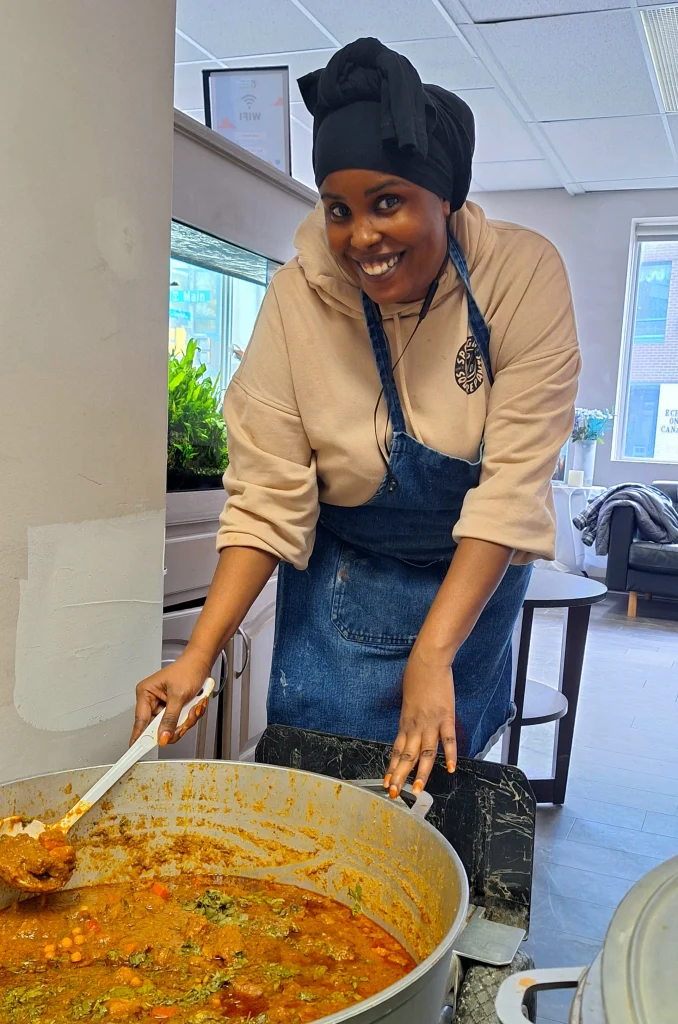
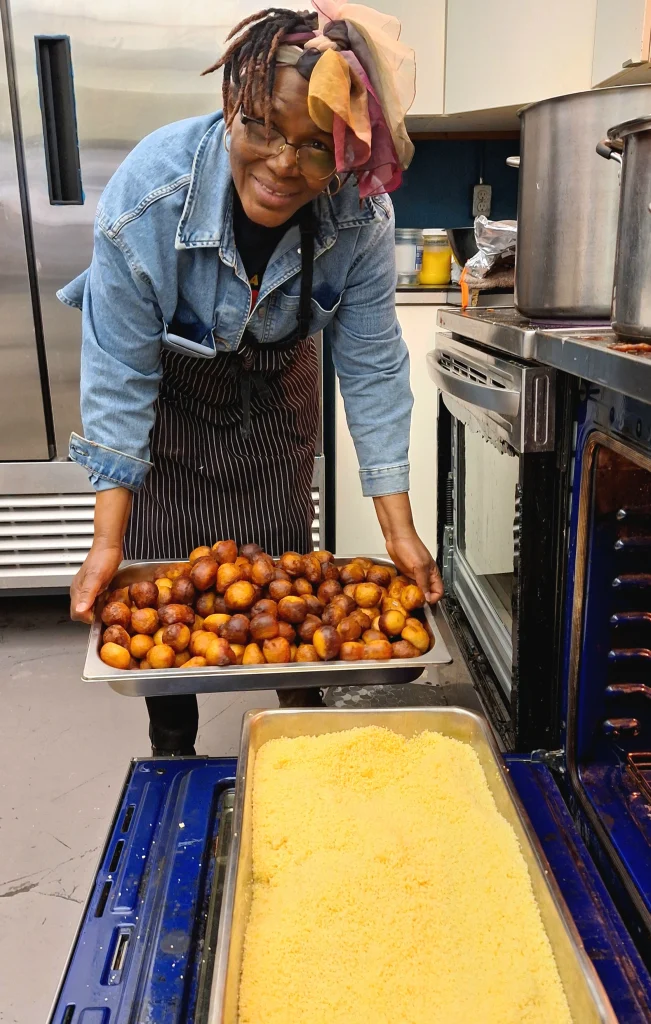
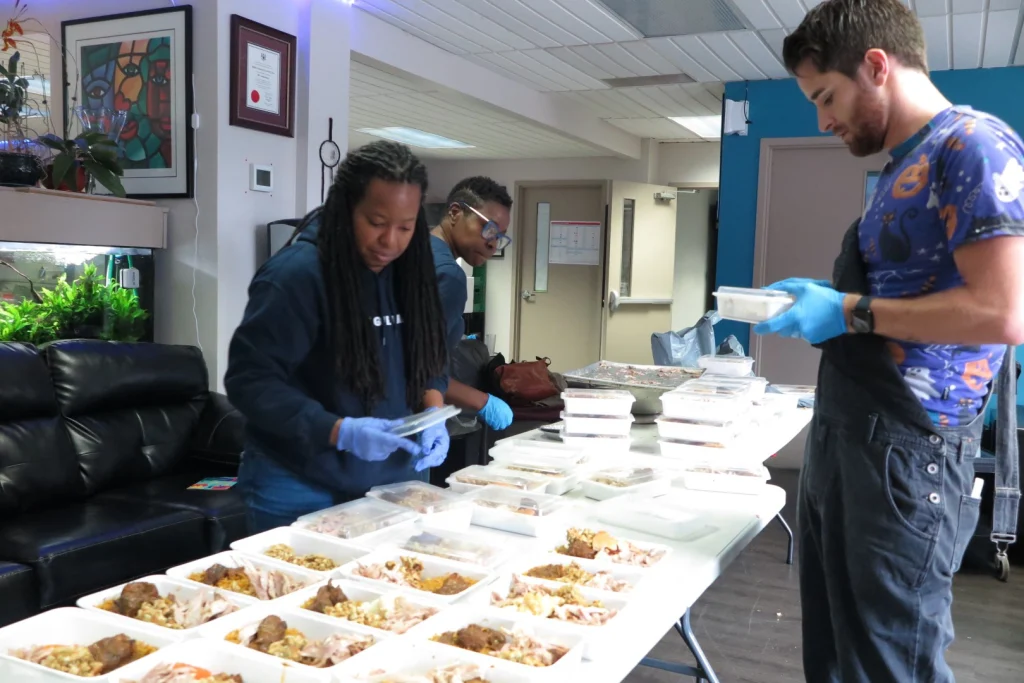
Cory Wong, Manager of Support Services states that ACO is taking a panoramic approach to the many supports and services they offer: “Our mandate is not limited to the medical or education parts of people living with HIV – it is also about anti-racism and anti-oppression work. We are an AIDS service organization as well as a social justice organization.”
In Quebec, Moisson Montreal made a point of understanding what culturally appropriate foods would support the organizations and communities it distributes to and works to source these.
Moisson Montreal – moisson meaning “harvest” in English – redistributes food to a network of over 300 organizations on the island of Montreal. About a third of the organizations they support are food banks who do hamper-type distribution. The other two thirds are organizations that gather people around food in some way such as women’s shelters, youth programs, and meal programs for people experiencing homelessness.
Such a broad and varied distribution network means there is a diversity of food needs and preferences Moisson Montreal is responding to. Some key relationship building efforts and initiatives by the organization have led to practices that centre their accessibility and equity values in providing food support.
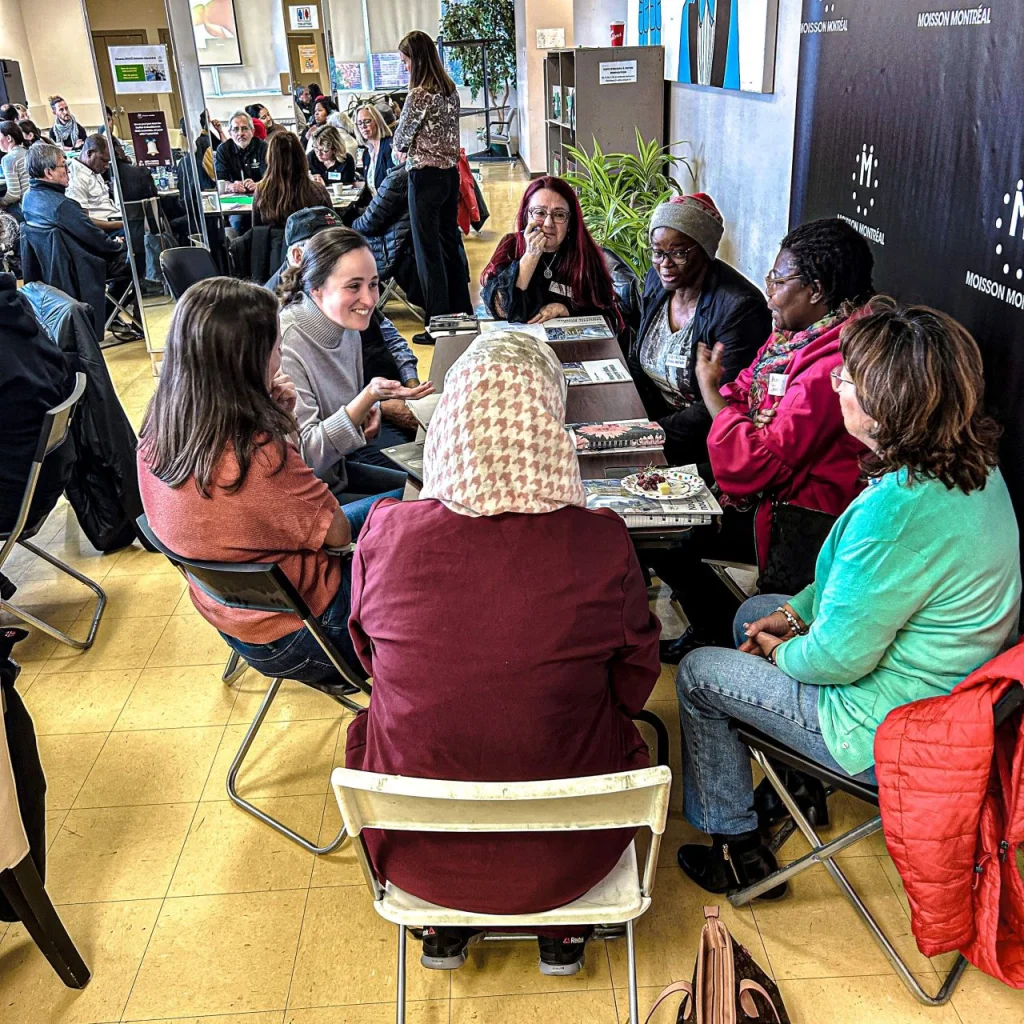
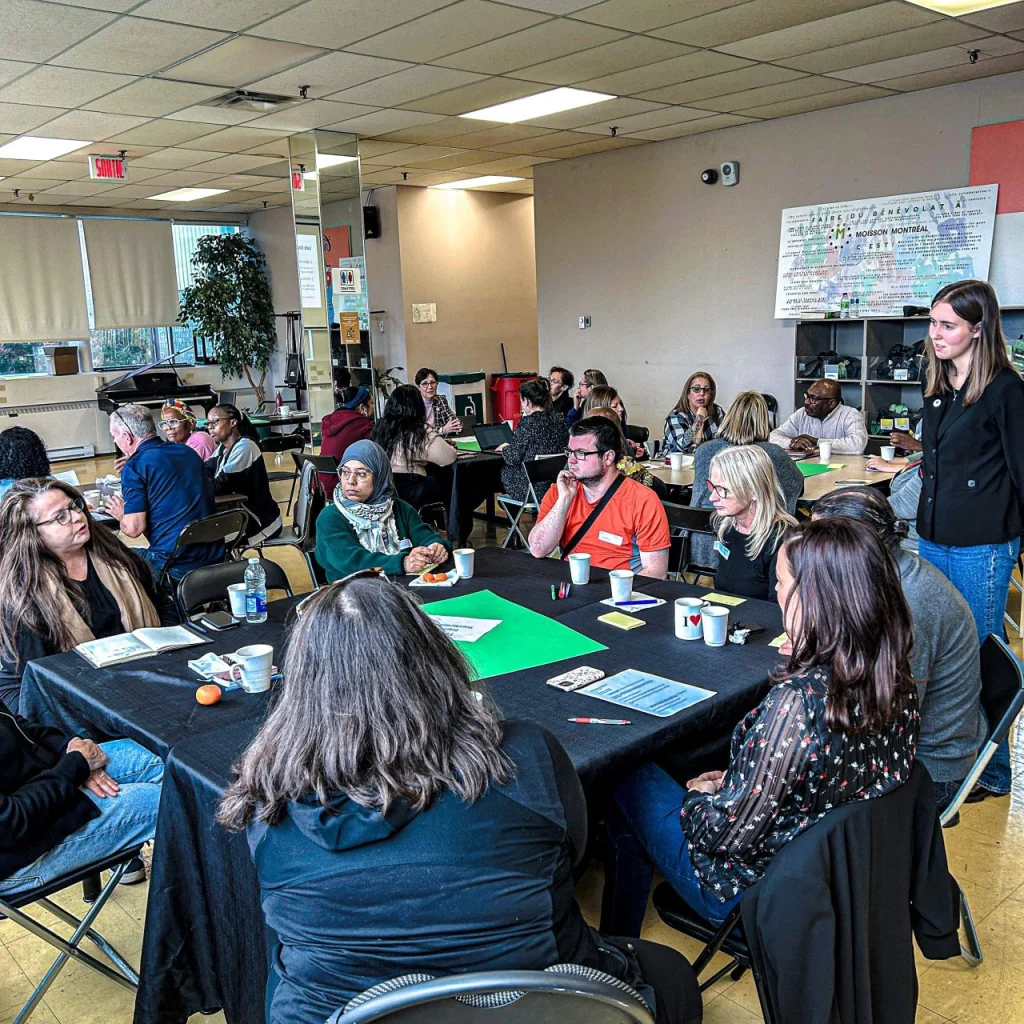
Catherine Boyer, Director of IT and Administration, tells the story of when their Executive Director first started back in 2016, they started something called “Les Grands Exchanges” – directly translated to “the Big Exchanges” – to facilitate dialogue with their partner organizations.
Moisson Montreal gathers its partners twice a year for les Grand Exchanges, along with a biannual survey, to build their relationships and discuss an important topic like Food Banks Canada’s annual HungerCount survey or upcoming holiday basket distribution.
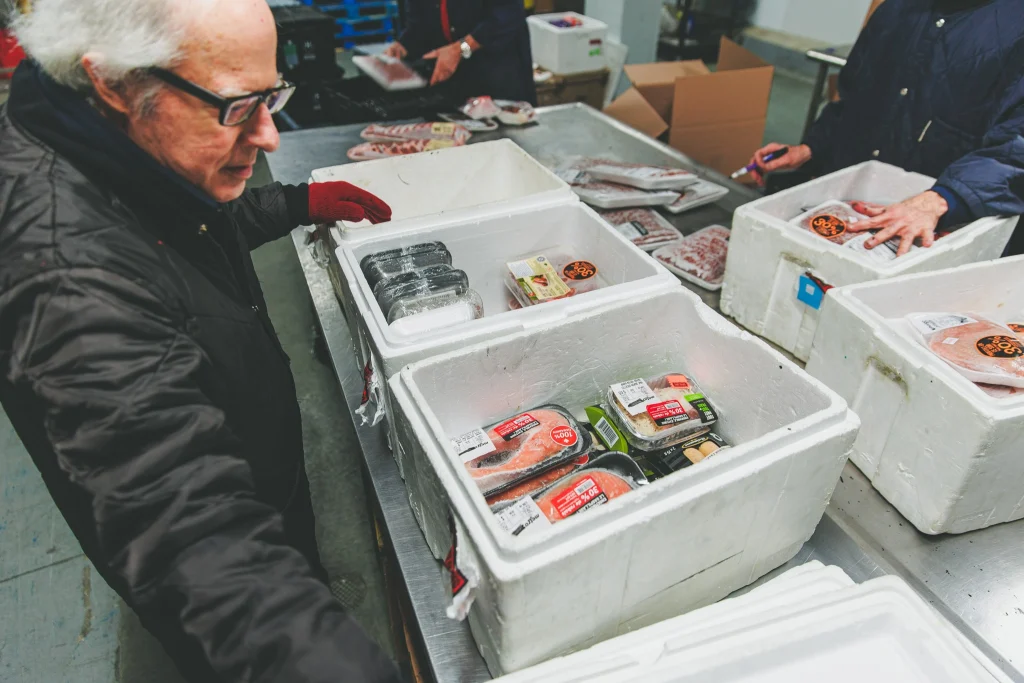
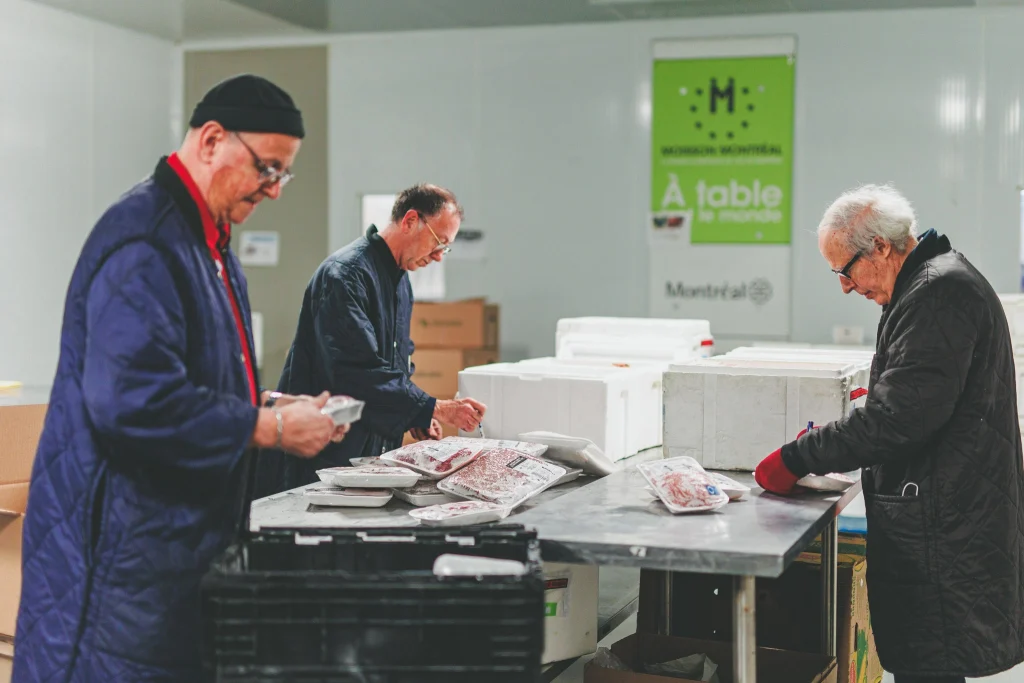
Out of one of the biannual discussions, Moisson Montreal heard that its distribution network was looking for food that could better meet the health, dietary, cultural, and religious needs of their communities. They responded by looking for procurement and other operational changes they could make to accommodate these needs. Some of these were:
- Beginning a practice of sorting meat donations from grocery stores at the source. They now separate the chicken, beef, and pork to make it easier to support organizations and communities who might not use all of these animal proteins for cultural or religious reasons.
- As part of their annual holiday basket program, Moisson Montreal now does a special diabetes-friendly basket.
- Efforts are made to specifically source Kosher and Halal foods.
Some of the many other accessibility and equity practices adopted by Moisson Montreal include:
- Participating in “tables de concertation” – roundtables or working groups – alongside other organizations to coordinate efforts on a particular social issue. This connects Moisson Montreal directly to community concerns and needs and led them to opening a second distribution hub in east Montreal, creating access for 13 partner organizations.
- The organization intentionally hires newcomers to give them a first job experience in Canada.
- Performing a review of their employee manual as part of Food Banks Canada’s Standards of Excellence program, Moisson Montreal recognized and made a commitment to put tangible policies and actions in the manual that meet its values of accessibility and equity – not just talk about them.
Donations to Food Banks Canada increase our capacity to support food banks across the national network as they adopt more equitable and accessible practices.
